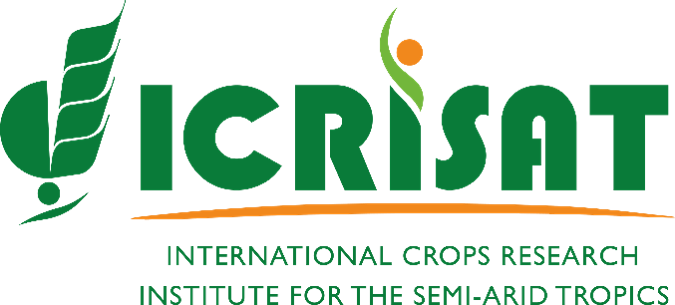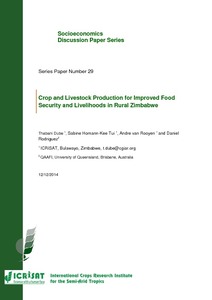Location
The International Crops Research Institute for the Semi-Arid Tropics (ICRISAT) is an international non-profit organization that undertakes scientific research for development.
Our approach is through partnerships and with an Inclusive Market Oriented Development.
Partnerships are critical as ICRISAT takes a catalyst role to help rural communities develop their own solutions and engage
the actors needed to bring the vision to reality.
Inclusive means we are inclusive of the farmers in developing solutions and inclusive of the all people especially women and youth.
Market Oriented Development means we focus our research and development efforts on making farming profitable,
helping move farmers from subsistence to commercial operators.
Members:
Resources
Displaying 51 - 55 of 75Crop coefficients of Jatropha (Jatropha curcas) and Pongamia (Pongamia pinnata) using water balance approach
Jatropha and Pongamia are a potential source of biodiesel and grow in a wide range of agroclimatic zones and soil conditions. Data and knowledge available on water requirement of Jatropha and Pongamia are very scarce. Crop coefficients are important parameters used for assessing water requirement and irrigation scheduling. In the present study, crop coefficients of Jatropha and Pongamia were estimated using water balance approach.
Balanced nutrient management for crop intensification and livelihood improvement: A case study from watershed in Andhra Pradesh, India
Soil health assessment of farmers’ fields in watershed villages in Medak district, Andhra Pradesh, India showed widespread deficiencies of sulfur (S), boron (B), and zinc (Zn) in addition to organic carbon and phosphorus (P). Participatory on-farm trials on soil test-based application of deficient Zn, B, and S along with nitrogen (N) and P during 2009 to 2012 significantly increased crop yields over farmers’ practice (FP)—by 31% to 45% in chickpea, 15% to 16% in cotton, 12% to 15% in paddy, and 8% to 9% in sugarcane.
Baseline and situation analysis report: Integrating crop and livestock production for improved food security and livelihoods in rural Zimbabwe
Baseline and situation analysis report: Integrating crop and livestock production for improved food security and livelihoods in rural Zimbabwe
Bhoochetana: Building Resilience and Livelihoods through Integrated Watershed Management
Rainfed areas are hotspots of poverty and malnutrition, and are prone to
severe land degradation of natural resources. Globally, 80% of agriculture is
rainfed providing 62% of the world’s staple food. With increasing population
over the years, per capita availability and quality of land and water resources
have declined substantially resulting to water scarcity. Agriculture is the major
consumer of water, accounting for 70-80% of water withdrawal. With the
impacts of climate change, existing water and land scarcity will be aggravated




